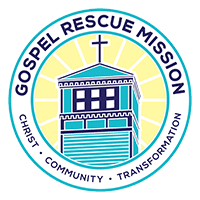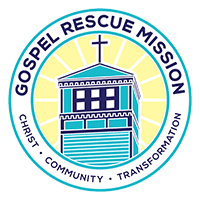We’ve heard it repeated dozens of times. “Don’t you know? Homelessness can happen to anyone! After all, studies show that over half of Americans are just one paycheck away from being homeless![1]” Of course, there are aspects to these kinds of statements that we recognize as true. It’s true that virtually everyone’s home is capable of catching on fire and burning to the ground. It’s also true that most Americans live with inadequate savings for the event of emergencies such as the loss of a job or a disruption to our cashflow routines. But is that all it would take for an individual or family to become homeless? Let’s consider some ideas…

In recent years on the West Coast, we have had multiple large-scale fires that have displaced whole communities. Consider the cities of Paradise California and Phoenix Oregon. The Paradise fire over 14,000 homes were destroyed and nearly 3,000 homes were lost in Phoenix. Yet very few of these resulted in people living on our streets. Why? Largely it is because of the strength of wise insurance investments, good relationships with creditors and lenders, and more importantly, good networks of friends and family.
Our local communities may have been temporarily filled with RV’s and travel trailers, yet our streets didn’t become overwhelmed with additional homeless with perhaps one exception. What we personally experienced was a large group of people who were already homeless who migrated to wherever there was fire relief aid being handed out and they pretended to be fire victims in order to get the resources[2].
When we let well intended government “help” agencies reduce problems to simple common denominators such as money or four walls and a roof, we’re likely to follow their example and duplicate their failed “solutions”. We will recklessly give out loads of “aid” focused on small personal comforts and never enough to actually purchase a home. We do this even though those who advocate for a financial solution don’t actually believe that the problem will be solved with finances. If you doubt this, just ask them why don’t they promote bypassing those supervising distribution agencies by giving directly to those who claim to be homeless? They instinctively know that there is more to the problem, but they have rejected the need for a moral guide required to fix it.
Imagine that we took a similar approach to hunger by focusing on how much easier it is to eat food with forks and concluding that we could solve hunger by simply providing starving populations with an abundance of forks. We’d likely find loads of used, bent and broken forks tossed into the bushes, roadsides, and water ways. We would hear slogans like, “Many Americans are simply one paycheck away from foodlessness! Hunger could happen to anybody!” Government think tanks would start campaigns with catchy titles like “Forks First”, and many of us would look at each other and nod our heads in common sense approval. While it’s perfectly true that forks do make eating easier and that most people who eat food use them, a fork is useless without food.
Having worked with thousands of homeless individuals, my staff and I have come to the conclusion that the overwhelming majority of them have been making choices for a very long time that can only lead to homelessness. These choices have predated their current financial and material economy, but primarily have to do with their relational economy. They have long stopped valuing how they impact people around them and they (like Adam and Eve in the garden) shift the blame for the consequences to others. Over time this deteriorates the real and powerful social network of support (family and friends) that most Americans enjoy. This is the primary cause of homelessness, and this is why it doesn’t simply or magically happen to just anyone.
Many of those outside of the Gospel Rescue Mission immediately conclude that it must be our drug & alcohol counseling or rigorous job training that is the secret to our success. The truth is that we see more personal growth in our program participants in their relationship skills than in those other areas (as necessary as they may be). Rediscovering what it means to live in a close community and learning to value those we share a home with can be challenging at first but becomes the glue that holds the rest together. It’s no wonder that Jesus explained that all of the laws in the Bible find their starting point in loving God and loving our neighbor[3].
By: Brian Bouteller, Executive Director
References:
[3]Matthew 22:34-40



Mr. Bouteller,
I appreciate your desire to address the root causes of homelessness, but your article, “Homelessness Doesn’t Just Happen to Anyone,” misrepresents both the data and the deeper truth of what drives this crisis. While anecdotal observations and individual experiences can offer perspective, the argument presented dismisses overwhelming structural evidence, misapplies biblical teachings, and ultimately reinforces harmful misconceptions.
1. Cherry-Picked Anecdotes vs. Nationwide Reality
Your use of wildfire displacement in Paradise, CA and Phoenix, OR as “proof” that homelessness rarely results from crisis events is anecdotal and misleading. The National Alliance to End Homelessness and U.S. Department of Housing and Urban Development (HUD) confirm that homelessness has risen in nearly every state, including California and Oregon, with over 653,000 people unhoused as of January 2023—a 12% increase in just one year (HUD 2023 AHAR).
Millions of Americans are, in fact, one paycheck away from housing insecurity. A Harvard Joint Center for Housing Studies report shows that over 12 million renters spend more than 50% of their income on rent (JCHS 2023). The margin between housed and unhoused is razor thin—not moral.
2. Blaming Individuals Ignores Structural Injustice
You argue that most people experiencing homelessness arrive there due to a “long series of relational failures.” This narrative erases the role of:
• Rising housing costs with stagnant wages
• Lack of mental health and addiction services
• Racial disparities in housing access
• Domestic violence as a leading cause of homelessness among women and children
The U.S. Interagency Council on Homelessness, HUD, and countless peer-reviewed studies confirm that systemic factors, not simply personal decisions, are the primary drivers of homelessness (USICH 2023).
Framing homelessness as a failure of friendship or community participation dismisses the lived experiences of working families priced out of housing, veterans unable to access medical care, and survivors of trauma navigating broken systems.
3. Misapplication of Biblical Principles
You cite Matthew 22:37–40—Jesus’ command to love God and neighbor—as justification for focusing on “relational economy” over material needs. But the Bible is far from silent on systemic justice:
• Isaiah 1:17 – “Learn to do right; seek justice. Defend the oppressed. Take up the cause of the fatherless.”
• Psalm 82:3 – “Defend the weak and the fatherless; uphold the cause of the poor and the oppressed.”
• Amos 5:24 – “Let justice roll down like waters, and righteousness like an ever-flowing stream.”
These are not metaphors for friendship; they are divine mandates for economic and structural compassion. The “forks and hunger” analogy in your post may seem clever, but it trivializes the very real fact that people are without food and housing not because they lack tools or values, but because the systems designed to support them are failing.
4. What Actually Works: Evidence-Based Housing First Models
You imply that aid programs fail because they treat housing as a material issue. Yet studies have consistently shown that Housing First models—where people are given stable housing before being required to engage in treatment—are more effective, humane, and cost-efficient than conditional programs.
Cities using Housing First approaches (e.g. Salt Lake City, Houston) have significantly reduced homelessness, saving public funds on emergency services and yielding better outcomes for long-term recovery and employment (National Alliance to End Homelessness).
To claim that finances or housing are not central to the problem is factually false and demonstrably harmful.
⸻
Final Thoughts
The tragedy of homelessness cannot be solved by moralizing personal behavior while ignoring the economic, systemic, and policy realities behind it. Your post attempts to reframe homelessness as a spiritual or relational problem—but that framing is incomplete and unsupported by evidence or Scripture.
As Christians and citizens, we are called to both compassion and justice. That means demanding better public policy, supporting proven models like Housing First, and ensuring that every neighbor—regardless of their past—is treated with dignity, safety, and opportunity. BE BETTER because now you know better.
Anything less is not just poor social science. It’s poor theology.